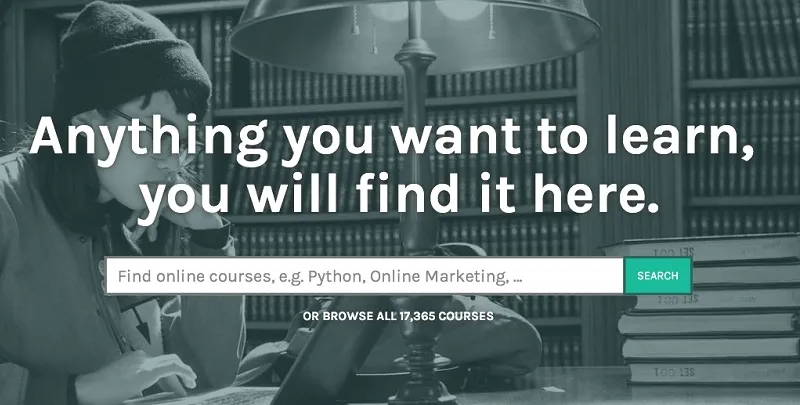IIT, Wharton, UCLA grads aim to transform education with SlideRule
We are in the cusp of an education revolution. Worldwide, the best universities are opening their gates to the masses with online courses. Thanks to the open education movement, from the nitty gritties of artificial intelligence to anatomy and nuclear physics, those who want to learn have access to great education. SlideRule, founded by alumni of the IITs, Wharton, and UCLA, is pushing that revolution by helping those who want to learn "discover the world's best online courses in every subject".

Today, a lot of learning content from experts is available online, but it is scattered. "We collect all the important metadata about the courses and present it in a normalized, user-friendly way that lets you compare, read reviews and make a choice. More importantly, we also curate sequences of online courses (called learning paths) to help you learn more complex job skills like web development and data analysis," explains Parul Gupta, co-founder, SlideRule. After completing electrical engineering at IIT Bombay and University of California, Los Angeles, Parul had worked with Ittiam Systems and IBM Research before she turned entrepreneur.
Learning at IBM Research
While researching at IBM, Parul took a few online courses on Coursera and Udacity. "I had a fantastic experience, which got me thinking about how powerful this idea could be! I really wanted to work in this space, to be a part of the revolution which was opening up quality education to the world."
Meanwhile, Gautam Tambay was following the MOOC (Massive Open Online Courses) movement in the US. Parul and Gautam met through common friends, started discussing ideas and spent a lot of time talking to users to understand their online learning behaviour and learning needs. The insights from these conversations led to SlideRule. "We - Gautam, myself and a couple of interns - started thrashing out our first prototype in July 2013. SlideRule is incorporated in the US since we are building for the global market, but the majority of our team is India," Parul says.
Wharton prof gave the first break
Parul is a firm believer in the online education revolution. According to her, there's really no looking back since the advent of the MOOCs (massive open online courses). "Coursera acquired its first 4 million users faster than Facebook and continues to add more courses and users by the day. The excitement about the space has also led to several other course providers coming up, to the point that content discovery and curation becomes a real problem. Majority of these users have been college students or older - lifelong-learners who are looking to acquire or improve their skills for work or learning just for fun." This, she says, is the problem SlideRule addresses.
"Since we are a consumer web business, our go-to market strategies have been around search engine optimization, social media marketing and reaching out to communities/forums of online learners," she says.
Rarely does a startup get its first break on the day of its launch. That's what happened with SlideRule. "We got our first break on the day of our launch when a Wharton professor mailed his entire online class of 40,000 students about us." Since then, they have invested a lot in SEO and SMM to maintain steady growth, "combined with a few runaway successes on HackerNews and Reddit. The challenge is to sustain and continue to grow from here," Parul says.

Angel funding to scale
SlideRule is just 9 months old, and had recently closed its first round of angel funding to scale operations.
Currently, they have affiliate partnerships with several course providers. So they get a commission on course purchases made through their site. "We are also working to build deeper paid services for learners."
Most of their team is in Bangalore. "Anshu Purohit is our star front-end developer, and Rajit Dasgupta is the growth hacker who keeps users coming in. We have also worked with awesome interns, freelancers and consultancies along the way," Parul says.
She feels SlideRule has been more fortunate than the average startup to have found great team members, mentors and angels early on. "Getting into the users' minds and understanding what they need, especially when we are building for a diverse global audience has been challenging. Also, since the space is pretty nascent, changing employers' perceptions about people who have gone through online programs will take some time," she says.
Their big vision is to create a more flexible, more accessible alternative system of education online. "We are in it for the long term," she says sharing their four-step roadmap to getting there:
1. Content discovery
2. Curriculum sequencing
3. Mentoring and assessment
4. Connect with employers
"We continue to engage with users to iterate based on their feedback," she adds.
Do you believe in the education revolution? Check out SlideRule here and tell us what you think of the idea.
Related article: How startups can crack a $40 billion market with job-oriented MOOCs







